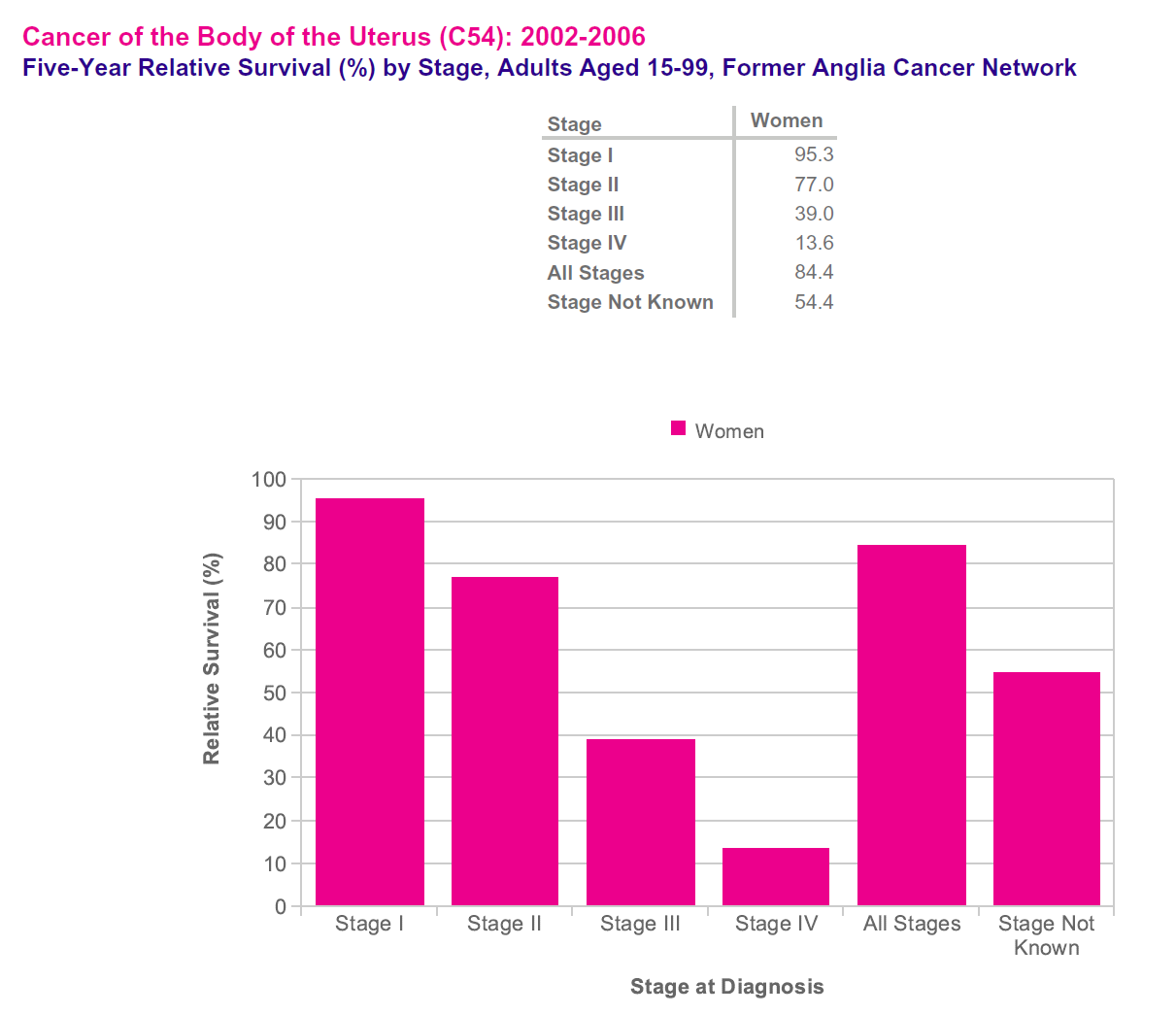Prognosis of uterine cancer
Survival outcome in patients with endometrial cancer varies with each FIGO stage. A debate has been created about the relative efficacy of old and new systems in predicting survival.
- according to the 2009 FIGO staging system, five year survival rate in
- stage I is 85%
- stage II is 75%
- stage III is 45%
- stage IV is 25%
In general, age and health of the patient and the histological grade and stage of the tumour determines the prognosis (1)
Almost 7 in 10 (78%) women diagnosed with uterine cancer in England and Wales survive their disease for ten years or more (2010-11).
Around 8 in 10 (79%) women diagnosed with uterine cancer in England and Wales survive their disease for five years or more (2010-11).
9 in 10 (90%) women diagnosed with uterine cancer in England and Wales survive their disease for one year or more (2010-11).
Almost 9 in 10 women in England diagnosed with uterine cancer aged 15-39 survive their disease for five years or more, compared with less than 6 in 10 women diagnosed aged 80 and over (2009-2013).
Uterine cancer survival is improving and has increased in the last 40 years in the UK.
In the 1970s, almost 6 in 10 women diagnosed with uterine cancer survived their disease beyond ten years, now it's almost 8 in 10.
When diagnosed at its earliest stage, 95% of women with uterine cancer will survive their disease for five years or more, compared with around 3 in 20 women when diagnosed at the latest stage.

Reference:
Create an account to add page annotations
Add information to this page that would be handy to have on hand during a consultation, such as a web address or phone number. This information will always be displayed when you visit this page